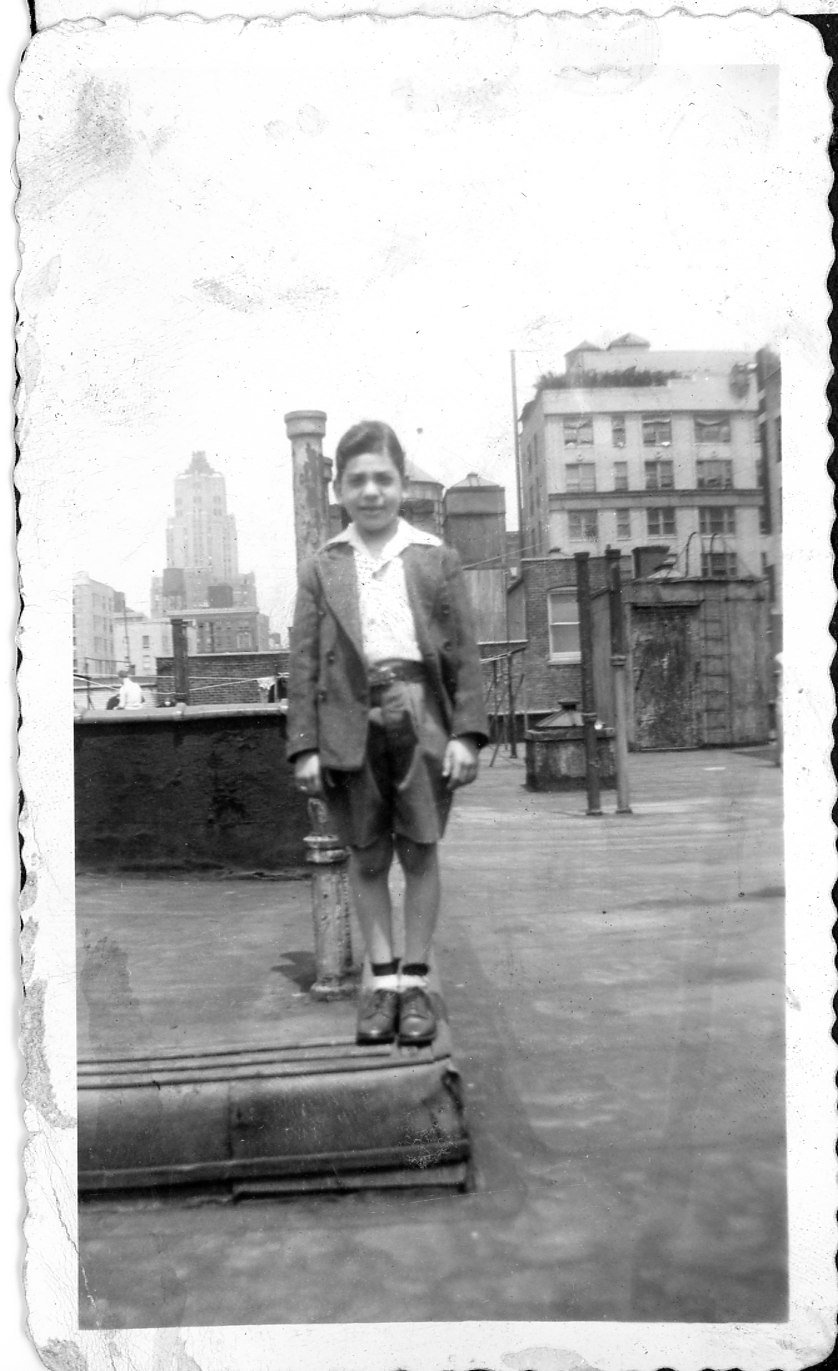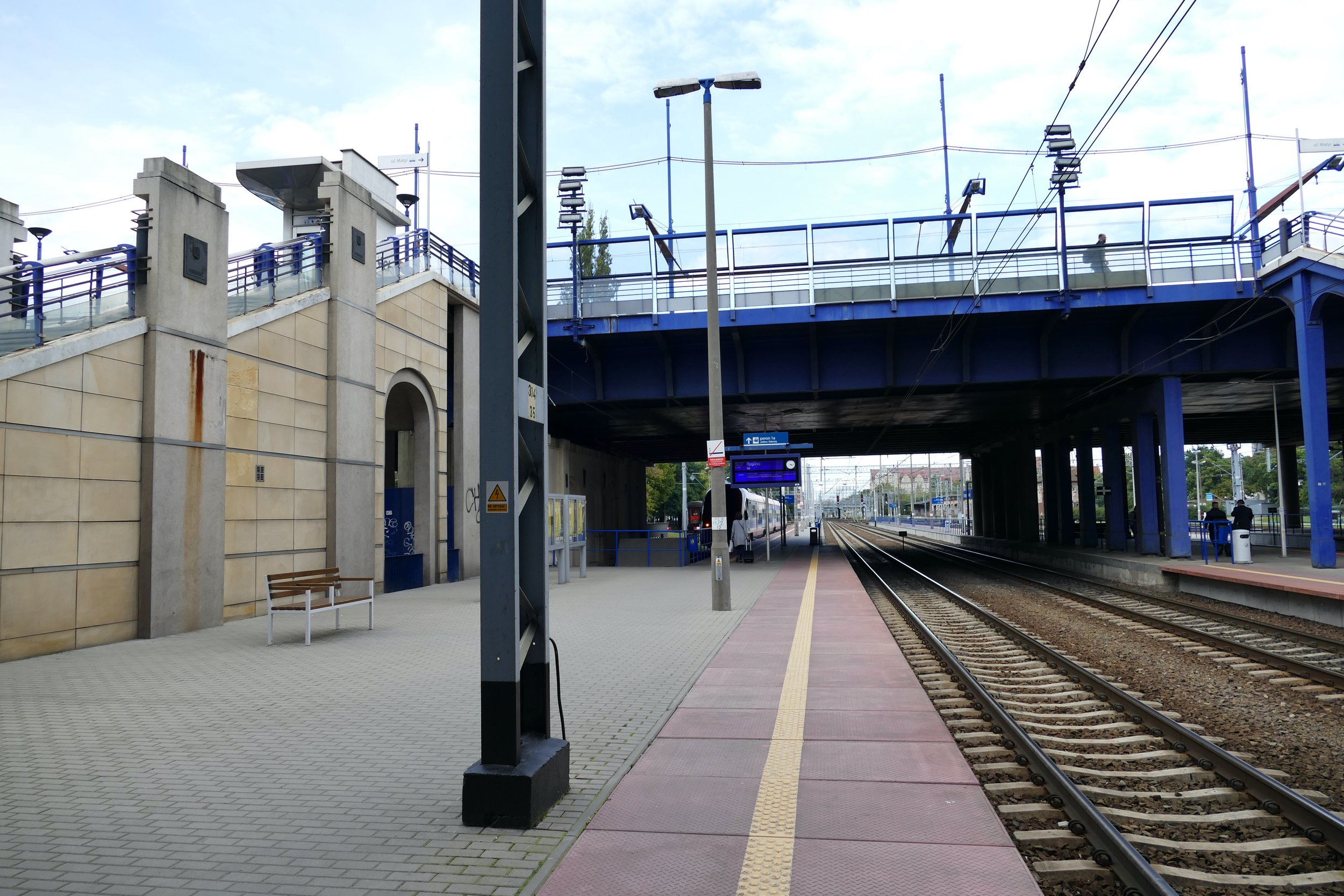Treasures from the Trunk and Where They Led
Letter from my father to his family, writtten "Somewhere in North Africa." He says, "I am fine and everything is alright." They did not hear from him again for 3 months. 26 January 1943
Telegram delivered to my grandparents announcing that my father is missing in action. My grandmother had a stroke that night. 8 March 1943
The Germans gave the POWs "lagergeld," a currency they could spend in the camp canteen--which usually had nothing to sell.
My father's "Mail Data Book," he used to keep track of every letter and package he received, and every letter and postcard he sent. 1943-1945
Many of the letters sent to my father never reached him. They were in the trunk, unopened, stamped "Return to Sender." I slit them open 70+ years later.
My father used this blue book to study Russian, most likely tutored by the Soviet POWs in secret. He also used it to record the evacuation of Oflag 64 and the "liberation" by the Red Army.
The Oflag 64 Glee Club in their "Little Theater" barracks. My father (far right) sang tenor. 1943
My Uncle Jerry was 8-years old (pictured here) when his brother (my dad) became a POW. He is the only surviving letter writer from the trunk's collection of correspondence. (see photo below)
With Pulitzer Prize war correspondent Larry Allen (back row, right) and the others who worked on the POW newssheet, The Daily Bulletin. My dad translated the German-supplied news--and interpreted the propaganda. January 1944
Draft of a letter to his girlfriend around the one year anniversary of his capture, "I considered my future on this earth to be extremely uncertain." 14 February 1944
The Germans put my father and 3 other POWs on trial for disobeying a guard's order during a visit to Poznan. As interpreter, my dad argued that the order was a violation of the Geneva Convention.16 August 1944. The trial was held in Gniezno in October 1944
My dad kept one Red Cross food label--the canned turkey. "The best thing I've ever tasted," he wrote home. 13 December 1944
First entry in the blue book chronicling the evacuation from Oflag 64 and his time with the Red Army. January-May 1945
Senior American POW Officers, with my father as interpreter, meeting with a Soviet General to plan their "liberation." Soviets then held them for a month at a horrific refugee camp. January 1945
Valentine sent to my father by his girlfriend in New York. It never reached him. February 1945
Zosia, a woman my father got to know in Rembertow, inscribed the back of this photo "to my dearest friend from a faraway country." February 1945
Magazine photo of Allied POWs marching to merchant marine ship in Odesa. My dad is among them somewhere. March 1945
He requested to be sent to Berlin to rebuild Germany. On the back of this photo he wrote, "In front of the Reichstag (or what's left of it) with a group of Russian soldiers. August 1945
The camp's barbed wire is still part of the landscape. This would have been my father's view too. 2015
My first visit to Oflag 64, Szubin, January 2015
With Estelle Laughlin, author and Holocaust survivor, enroute to Krakow, 2015
One of many wonderful conversations with my Uncle Jerry (and Aunt Mary Ann) about the letters Jerry wrote 75+ years ago that are in the trunk.
The Poznan train station where my dad, as POW interpreter, argued with a German guard who was not following the rules of the Geneva Convention regarding the treatment of POW officers. Photo 2017
In 1939, the occupying Germans stripped this grand Poznan synagogue and turned it into an indoor swimming pool. It still says "swimming pool" above the windows. Photo 2017
In 2017, in the town of Gniezno, Mariusz Winiecki helped me visit the monastery where the occupying Germans held my father and the other defendants in 1944 during the harrowing night before their German court-martial.
The courthouse in which the Germans court-martialed my father and the other POW defendants in October 1944. Photo 2017
In 2017, in Szubin, with other POW descendants and Szubinite and expert Mariusz Winiecki at Oflag 64. Two years later our group led by Cindy Sharpe Burgess (above) founded a U.S. 501c3 and a Polish-American foundation to build a museum in an original POW building.
In 2018, I had the pleasure and honor to interview Lt. Ted Roggen, a former Oflag 64 POW. He was 101 and we talked for 4 hours.
In 2018, with Lt. Don Waful, age 102, a former Oflag 64 POW and fellow member of the Oflag 64 Glee Club with my father. "We were scared to death every time your father left the camp for one of his interpreting trips." "Why?"I asked. "Because he was Jewish."
My sweet friend Karol, who shared his love of Paw Patrol with me at the Poznan Museum of Armaments.
Poznan Museum of Armaments curator, Kryzysztof Janowiak, demonstrates the WWII Dodge WC52.
Curator Miłosz Stroński explains the WWII exhibits to Mariusz and me at the Poznan Arms Museum.
With Kasia Kacprzak, Warsaw's indomitable genealogical researcher who helped uncover the details of my father's journey with the Soviets and the Poles who befriended him.
Based on the descriptions I found, Kasia tracked down one of the locations where my father and other POWs bunked during their 4-week stay at the Soviet/NKVD refugee camp in Rembertow. Photo 2018
Outside of the basement bunker in Rembertow. Photo 2018
The renovated "White House" that once held the POWs is now used for the Szubin town offices. Photo 2023
What was once a POW dormitory, has been renovated. My dad would be glad to know this room is now used for town council meetings.
Confetti from a wedding outside the building that was once used to house the Oflag 64 prisoners. How nice that the building is now used for happier purposes.
In 2023, I got to take my husband to Szubin. Here we are with Mariusz's generous and hospitable family. My father and his trunk has helped to create a new community of friends to share this history.








































